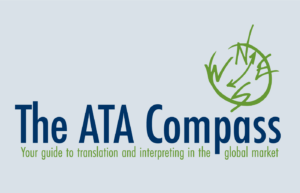Healthcare Interpreters: Replacing Myth with Fact
If you had a bad experience with an incompetent doctor, would you give up on the entire medical profession? Of course not—but that’s the attitude many doctors have toward healthcare interpreters. It’s time to replace myth with fact.
Myth: All interpreters are incompetent.
Fact: You’ll get good results if you use a professional instead of a bilingual bystander. Qualified healthcare interpreters have language skills and medical knowledge that bilingual staff and family members lack—and they follow a well-established code of ethics and rigorous standards of practice.
Myth: Doctors are better off “getting by” without interpreters.
Fact: “Appropriately trained interpreters are the ideal situation,” says Dr. James Rohack, Immediate Past President of the American Medical Association. “The US is a melting pot of many cultures and languages. You need three key components in an interpreter: linguistic competence, medical competence, and cultural competence.”
Myth: Interpreting is a waste of precious healthcare resources.
Fact: Interpreting reduces healthcare costs by improving doctor-patient communication.
“When a language barrier prevents the doctor from diagnosing the patient, he’ll cover himself with extra tests” says Doug Green of the Texas Association of Healthcare Interpreters and Translators. “If you aren’t using qualified interpreters in healthcare, you’re hemorrhaging cash.”
Dr. Rohack agrees. “Look at the common thread in lawsuits: it’s that the patient feels the doctor didn’t adequately explain why he did what he did. Inadequate communication means more tests, but there’s also a higher risk of lawsuits.”
Contributors:
- Lillian Clementi
- Chris Durban
- Corinne McKay
Language Services Directory
Subscribe to The ATA Compass
Connect with The ATA Compass
Recent Posts
Client Assistance
Can I afford to hire a professional? You can’t afford NOT to. Poor translation and interpreting services can be disastrous for your business. See what’s at stake. Learn More What’s…
Read MoreThe ATA Compass
Want to reach more customers, grow your business, and improve your bottom line? The ATA Compass publishes articles and provides resources to show you how language professionals can help you…
Read MoreBuying Language Services
Guide to Buying Translation Services Translators help power the global economy, working with businesses, governments, non-profits and individuals. Translators work with the written word. The ATA Guide to Buying Translation…
Read MoreFind a Translator or Interpreter Near You
Searching for a Nearby Translator or Interpreter? Whether you require accurate document translations, real-time interpreting for an event, or specialized industry expertise, finding the right professional near you has never…
Read MoreWhat is a Certified Translation?
What are the basics of a certified translation? In the United States, anyone can certify a translation. A translator does not need to be certified in order to provide a…
Read MoreWhy You Should Use a Certified Translator or Interpreter
Choosing a Certified Professional is the Smart Choice A certified translator or interpreter ensures effective, accurate, and culturally sensitive communication that truly bridges the gap between languages and cultures. Accuracy…
Read More






